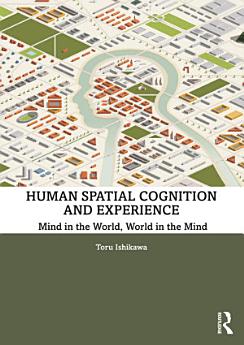Human Spatial Cognition and Experience: Mind in the World, World in the Mind
About this ebook
We live in space and space surrounds us. We interact with space all the time, consciously or unconsciously, and make decisions and actions based on our perceptions of that space. Have you ever wondered how some people navigate perfectly using maps in their heads while other people get lost even with a physical map? What do you mean when you say you have a poor "sense of direction"? How do we know where we are? How do we use and represent information about space?
This book clarifies that our knowledge and feelings emerge as a consequence of our interactions with the surrounding space, and show that the knowledge and feelings direct, guide, or limit our spatial behavior and experience. Space matters, or more specifically space we perceive matters. Research into spatial cognition and experience, asking fundamental questions about how and why space and spatiality matters to humans, has thus attracted attention. It is no coincidence that the 2014 Nobel Prize in Physiology or Medicine was awarded for research into a positioning system in the brain or "inner GPS" and that spatial information and technology are recognized as an important social infrastructure in recent years.
This is the first book aimed at graduate and advanced undergraduate students pursuing this fascinating area of research. The content introduces the reader to the field of spatial cognition and experience with a series of chapters covering theoretical, empirical, and practical issues, including cognitive maps, spatial orientation, spatial ability and thinking, geospatial information, navigation assistance, and environmental aesthetics.
About the author
Toru Ishikawa is a Professor in the Department of Information Networking for Innovation and Design (INIAD) at Toyo University, Tokyo, Japan. He has a PhD in geography from the University of California, Santa Barbara, and is an associate member of the Science Council of Japan. He specializes in cognitive-behavioral geography, geographic information science, and urban residential environments and planning. His research interests include cognitive maps and mapping, wayfinding and navigation, spatial thinking in geoscience, and geospatial awareness and technology.




